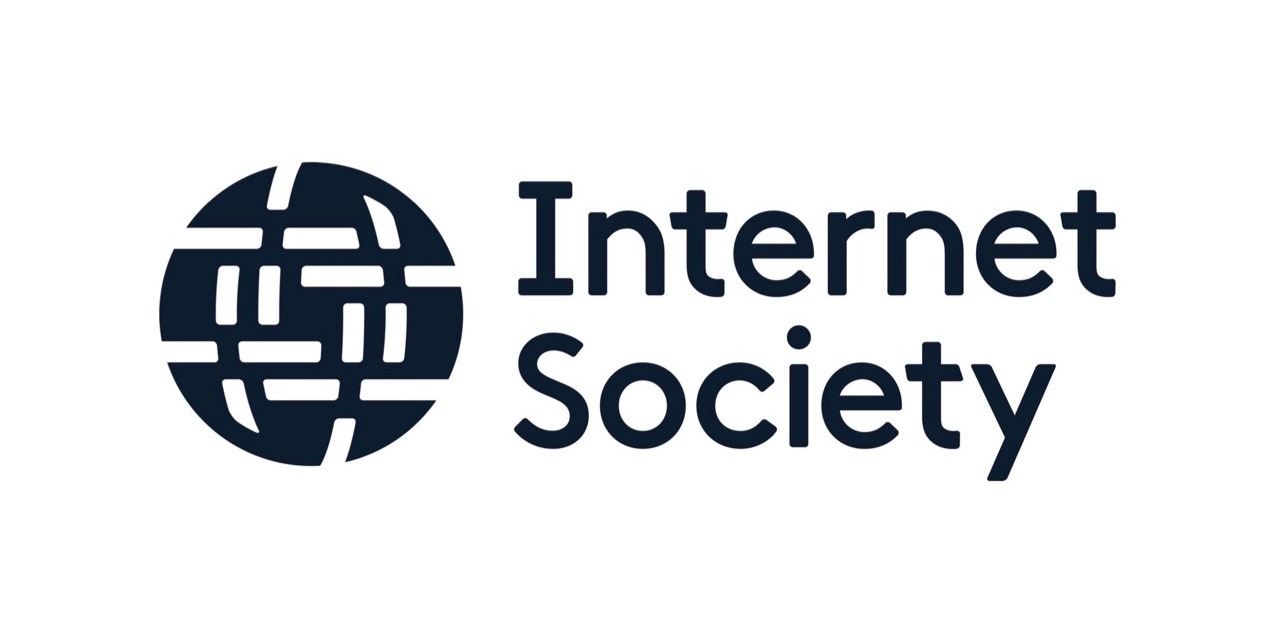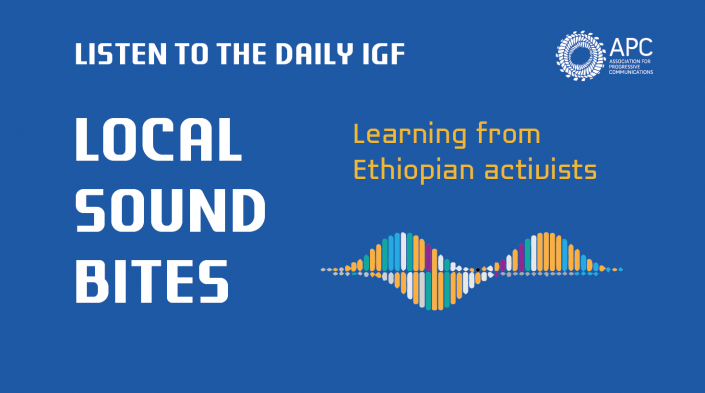
The seventeenth meeting of the Internet Governance Forum has just concluded last week in Adis Ababa, Ethiopia. This week's TypeRight will focus solely on updates from this year's IGF, which had several discussions on a variety of topics, two of which DEF was also a part of.
The Internet Governance Forum is a "global multistakeholder platform that facilitates the discussion of public policy issues pertaining to the Internet."
The Annual meeting was born out of the 2005 Tunis Agenda in the World Summit of Information Societies - asking the UN secretary-general to convene an annual meeting for multi-stakeholder discussion on Internet Governance. The following paragraph is from the IGF's website on the mandates of the Tunis Agenda:
Discuss public policy issues related to key elements of Internet governance in order to foster the sustainability, robustness, security, stability and development of the Internet;
Facilitate discourse between bodies dealing with different cross-cutting international public policies regarding the Internet and discuss issues that do not fall within the scope of any existing body;
Interface with appropriate inter-governmental organizations and other institutions on matters under their purview;
Facilitate the exchange of information and best practices, and in this regard make full use of the expertise of the academic, scientific and technical communities;
Advise all stakeholders in proposing ways and means to accelerate the availability and affordability of the Internet in the developing world;
Strengthen and enhance the engagement of stakeholders in existing and/or future Internet governance mechanisms, particularly those from developing countries;
Identify emerging issues, bring them to the attention of the relevant bodies and the general public, and, where appropriate, make recommendations;
Contribute to capacity building for Internet governance in developing countries, drawing fully on local sources of knowledge and expertise;
Promote and assess, on an ongoing basis, the embodiment of WSIS principles in Internet governance processes;
Discuss, inter alia, issues relating to critical Internet resources;
Help to find solutions to the issues arising from the use and misuse of the Internet, of particular concern to everyday users;
Publish its proceedings
This year, the meeting happened in Ethiopia's capital Addis Ababa, and this was not without criticism. Ethiopia has also been seeing a civil war between the government and the Tigray People's Liberation Front - a conflict that has caused a sizeable portion of the 5 Million population in Tigray without internet and digital banking for two years.
The Internet shutdown in Tigray is paralleled to the Kashmir region in India, with over 22 shutdowns since 2016. Even as the IGF rolled on in the country, the Prime Minister was defensive of the shutdown, offering no particular date or timeline for restoring internet services, and also claiming the internet has "supported the spread of disinformation."
However, the venue is significant given the statistics. One of the main points of this IGF was “universal, affordable and meaningful connectivity”, and the relevance of this in Africa where 60 percent of the continent’s 1.3 billion people are offline is immediately visible.
"Between 2019 and 2021 Internet use in Africa jumped by 23%. Despite this impressive growth, there is still a coverage gap of over 840 million people who don’t have access to reliable and affordable Internet access," says the report from the Internet Society, which claims the penetration rate is still a meagre 43%.
At the Digital Empowerment Foundation, we have participated in many previous annual meetings of the Internet Governance Forum. This year, we had a lightning talk on Democratising the Discourse on Data Rights, some of the experiences we collected from our work in rural India, and a book release of the Data Justice Project we were part of earlier this year.
There have been several cases where rampant datafication and digital push without looking at the basic infrastructure of access have led to exclusions and fatalities. Recent examples include the pregnant woman who died after she did not receive healthcare because of lack of an Aadhaar (Unique ID Card), or the people who didn't get rations because of biometric reader errors, and workers not getting paid because of connectivity errors in their attendance apps. This is one aspect of Data Rights. The other is your data being stolen or leaked, or this data being used in financial frauds or for surveillance. Policies that enforce dataification do not look at this basic issue of access.
Digitisation has to be contextually informed from the ground, and there must be sufficient consultation and interaction with all the stakeholders- the policymakers, developers and impacted people in this process. ‘Dataification’ should be done with human touch rather than consumerist touch. To ensure data rights for all communities, the presented challenges must be effectively tackled, and meaningful connectivity and making tech local are some place to start. For tackling the other issues such as OTP frauds, there needs to be more languages the OTPs are available in, as well as an increased awareness of the potential harms in these languages. Such targeted lessons should also be made available to the elderly. Opening of centres that are specialised in handling such issues, like rural cyber police centers can also help these communities.
You can watch the full video here:
Automation and datafication without taking into account ground realities, local contexts and systemic injustices further marginalise the already vulnerable. For example, homeless populations, transgender persons and other gender/ sexual minorities, religious minorities, nomadic populations and those lacking in textual or digital literacy. Due to multiple marginalities, data injustice has a cumulative impact on them often resulting in multiple levels of exclusion. The focus on using data for ease of governance should shift to enabling easier access to citizen services, to inclusion rather than exclusion.
When it comes to the private sector, app-based companies use data to surveil and control workers. However, the courtesy of data transparency is not extended to them when worker safety is either threatened by the company or customers. Thus, it further disempowers the workers. To counter data injustice, data policies must be grounded on internet universality. As such, they must be open, accessible, right-based, citizen-centric and formulated through multi-stakeholder consultations be it at national or international levels. The first step in reforming policies should be consultations with marginalised/ excluded groups. Then there should be national-level audits of the data sector. Ethics companies ensuring diversity in representation and participation should be formed in software companies and gig platforms to look into potential data injustices. Additionally, there is an urgent requirement for curriculum revision incorporating components of data justice so that data scientists and software developers develop a social science lens and become critically aware of the social impact of their work.
You can listen to the full talk here.
Besides the DEF sessions at IGF2022, Osama Manzar also spoke and participated in the special session on Internet Commons. You can access the entire discussion here:
This is APC's report of our Book Launch:
The Association for Progressive Communications (APC), of which DEF is a member, has done extensive coverage of several other discussions at the IGF event.
In their page, APC has put out the short audio interviews they had conducted with activists on the ground in Ethiopia: those fighting for women's rights, against internet shutdowns and surveillance, fact-checkers, and human rights defenders.
The APC call for action at the IGF echoed the demands from its member organisations across the global south: demanding the inclusion of Women and LGBTIQ+ people in the digital futures we imagine,
protection from "gender-based political violence against those who occupy decision-making spaces or insist on raising their voices against injustices,"
- and the "re-establishment of internet access across the African region – and beyond –and the promotion of a free, open and secure internet that allows all to fully exercise their fundamental rights." You can read the full statement here:
Team DEF, signing off for the week from Ethiopia, but we promise to be back next week and onwards with our regular updates on the weekly Typeright!
























 might be?](https://sk0.blr1.cdn.digitaloceanspaces.com/sites/1394/posts/714526/dbc8de4c-5c50-411f-aba0-55cfb74a692d.jpeg)

Write a comment ...